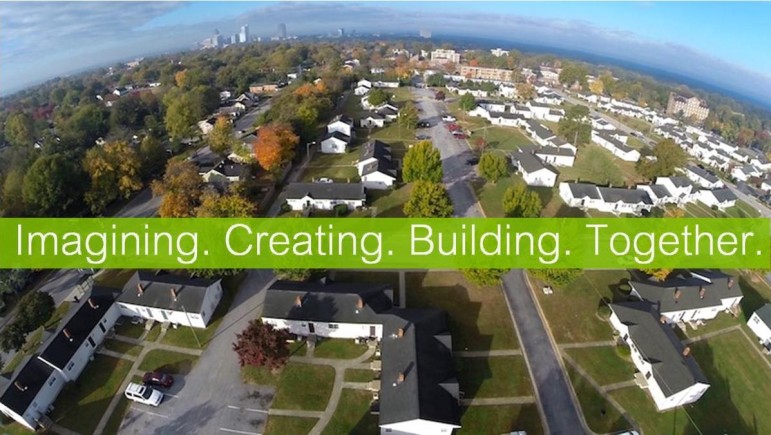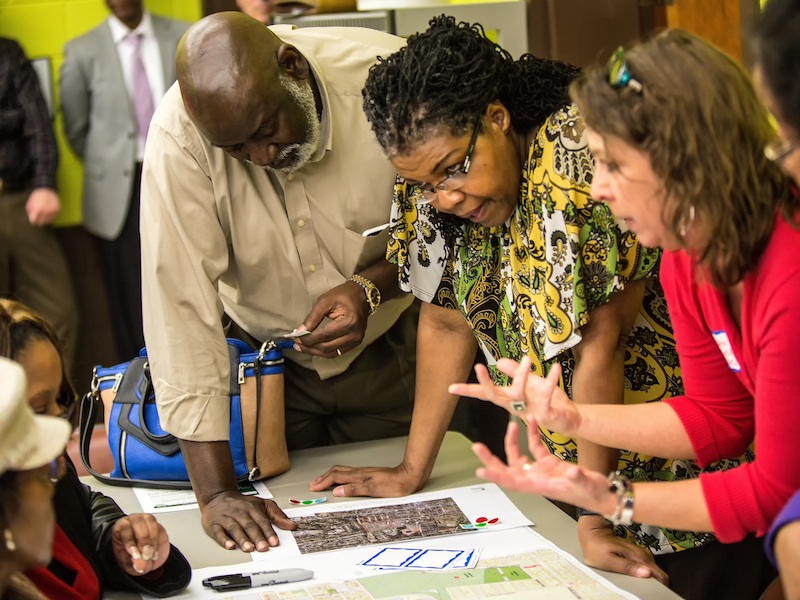The public hearing for the city of Raleigh’s Neighborhood Revitalization Strategy Area last got off to a rocky start last week, as Raleigh residents with ties to the affected area showed disapproval of the plan and the lack of communication from the city.
The NRSA encompasses two historically African American communities — College Park and Washington Terrace, both of which are in proximity to St. Augustine University. The areas, according to the report from the city’s housing and neighborhoods department, have a higher than average number of individuals living under the poverty line. Both communities are predominantly residential.
Larry Jarvis, of the housing and neighborhoods department, made the presentation to the city council, highlighting the desired change of the two communities through the NRSA to mixed-income neighborhoods. The NRSA would allow the DHIC, a nonprofit organization, to apply for low income housing tax credits to develop a place for seniors. Other benefits would include a day care facility and a possible new school.
Jarvis noted that the city had been acquiring property in East College Park for a number of years. Most of the property, according to the report, had been found to be blighted and was therefore demolished after the tenants were moved to a more suitable housing development of their choosing.
Councilor Weeks asked Jarvis if he planned to continue discussions with the community about the NRSA. Jarvis said discussions would continue with those he and other staff members had already talked to.

DHIC
The Washington Terrace Neighborhood
Resident: “Community has to be part of the process.”
After Mayor McFarlane opened the public hearing, numerous residents of Raleigh with ties to the two areas spoke out against the perceived lack of communication from the city and the creation of another revitalization plan that might displace African Americans rooted in the area.
Octavia Rainey, chair of the North Central Citizens Advisory Council, spoke out against the inclusion of East College Park into the NRSA. She stated that East College Park had already been rezoned to allow for redevelopment and revitalization.
Carmen Coffin, a resident of Oberlin who had lived in southeast Raleigh, acknowledged that the southeast Raleigh area had undergone many changes in the past few decades. She questioned the city’s communication regarding the NRSA, saying the document was hard to find online.
“Community has to be part of the process,” Coffin said. “Community votes here. They pay taxes here. And they shouldn’t be left at the tail end of something. They should be told about what’s going on in their community.”
Janette Howards, who lives on Poole Road, said she has been part of four generations in East College Park. She said “mixed-income” is not a new terminology for the neighborhoods and that a task force was needed to engage people within the community.
Mary Johnson, who has ties to the Tarboro community center, said she had first heard about the NRSA at an August 25 meeting and that many of her neighbors didn’t have computers to look up the document. She said that trust between the city and the community was an issue.
The public hearing was held open until November 3 to allow for more input from the community.
